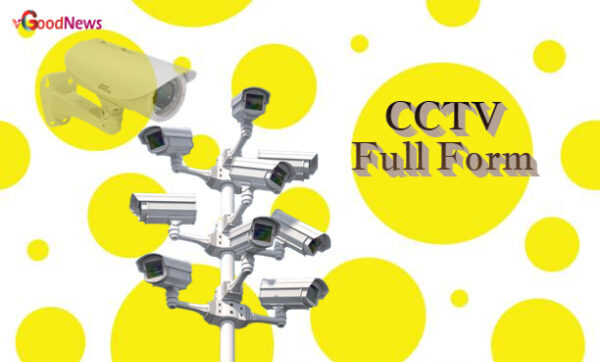CCTV Full Form and Overview
CCTV Full Form: CCTV stands for Closed-Circuit Television. It represents a significant step towards the development and modernization of a country. CCTV is commonly used in public places such as shopping malls, railway stations, banks, schools, hospitals, construction sites, transportation hubs, factories, and various other public areas. Its primary function is to monitor activities and enhance security.
CCTV Full Form: What is CCTV?
Closed-Circuit Television (CCTV) is a video monitoring system designed for intrusion detection. It uses video cameras to capture footage and displays it on monitors for easy surveillance of a given area. CCTV systems can utilize wired or wireless transmissions to send signals from cameras to monitors. Often referred to as video surveillance, the monitoring begins as soon as the camera captures the video signal, which is then transmitted to the display monitor.
CCTV Usage: CCTV Full Form
CCTV systems are used for various monitoring purposes, including out-of-hours emergency surveillance, traffic monitoring, and crime prevention. By capturing and recording activities, CCTV helps maintain security in multiple environments. CCTV Full Form
CCTV Full Form: Benefits of CCTV
- Crime Prevention: CCTV deters criminal activities by monitoring and recording events.
- Traffic Monitoring: It helps detect congestion and accidents, facilitating better traffic management.
- Cost-Effective: Installing CCTV is relatively inexpensive, and it doesn’t require professional engineers for setup.
- Real-Time Monitoring: CCTV systems can record and transmit images in real-time, aiding in immediate response to incidents.
- Versatility: Useful in various settings such as parks, business centers, airports, shopping malls, and restaurants.
Types of CCTV Cameras: CCTV Full Form
- Recording Cameras: These use video cameras to capture footage that is stored on hard drives or other media.
- DVR (Digital Video Recorder): This type stores video recordings on hard drives or other media, allowing for efficient playback and archiving.
- Monitoring Cameras: Connected to a monitoring station, these cameras provide live video feeds for real-time surveillance.
Why CCTV Surveillance?
CCTV surveillance offers numerous benefits: CCTV Full Form
- Crime Deterrence: Acts as a deterrent to potential criminals by monitoring and recording their activities.
- Security Monitoring: Vital for monitoring traffic, detecting suspicious activities, and ensuring road safety.
- Real Estate: Helpful in the real estate market for verifying properties and providing security for potential buyers.
- Emergency Response: Effective in emergencies, offering real-time monitoring and response capabilities.
- Cost and Time Efficient: More secure and economical than traditional surveillance methods, saving both time and money.
Conclusion
CCTV (CCTV Full Form) systems are invaluable for maintaining security and monitoring various environments. They offer high-quality images and sound, making them an excellent tool for law enforcement, public safety, and institutional security. With numerous applications and benefits, CCTV systems are integral to modern security infrastructure.
FAQs about CCTV Full Form
What is the full form of CCTV?
CCTV stands for Closed-Circuit Television. It is a video monitoring system used to enhance security and surveillance in various public and private spaces.
What are the primary uses of CCTV?
CCTV systems are used for monitoring public places like shopping malls, railway stations, banks, schools, hospitals, construction sites, transportation hubs, and factories. They help prevent crime, manage traffic, and ensure overall safety.
What types of CCTV cameras are available?
The main types of CCTV cameras include:
- Recording Cameras: Capture footage and store it on hard drives or other media.
- DVR (Digital Video Recorder): Stores video recordings for playback and archiving.
- Monitoring Cameras: Provide live video feeds for real-time surveillance.
What are the benefits of using CCTV?
The benefits of CCTV include:
- Crime Prevention: Deters criminal activities by monitoring and recording events.
- Traffic Monitoring: Detects congestion and accidents to facilitate better traffic management.
- Cost-Effectiveness: Installation is relatively inexpensive and doesn’t require professional engineers.
- Real-Time Monitoring: Provides immediate response to incidents through live monitoring.
- Versatility: Useful in various settings such as parks, airports, shopping malls, and restaurants.
Why is CCTV surveillance important?
CCTV surveillance is crucial because it provides real-time monitoring, aids in crime prevention, helps manage traffic and public safety, supports emergency responses, and is cost-effective compared to traditional surveillance methods. It ensures security in numerous environments, from public spaces to private properties.

